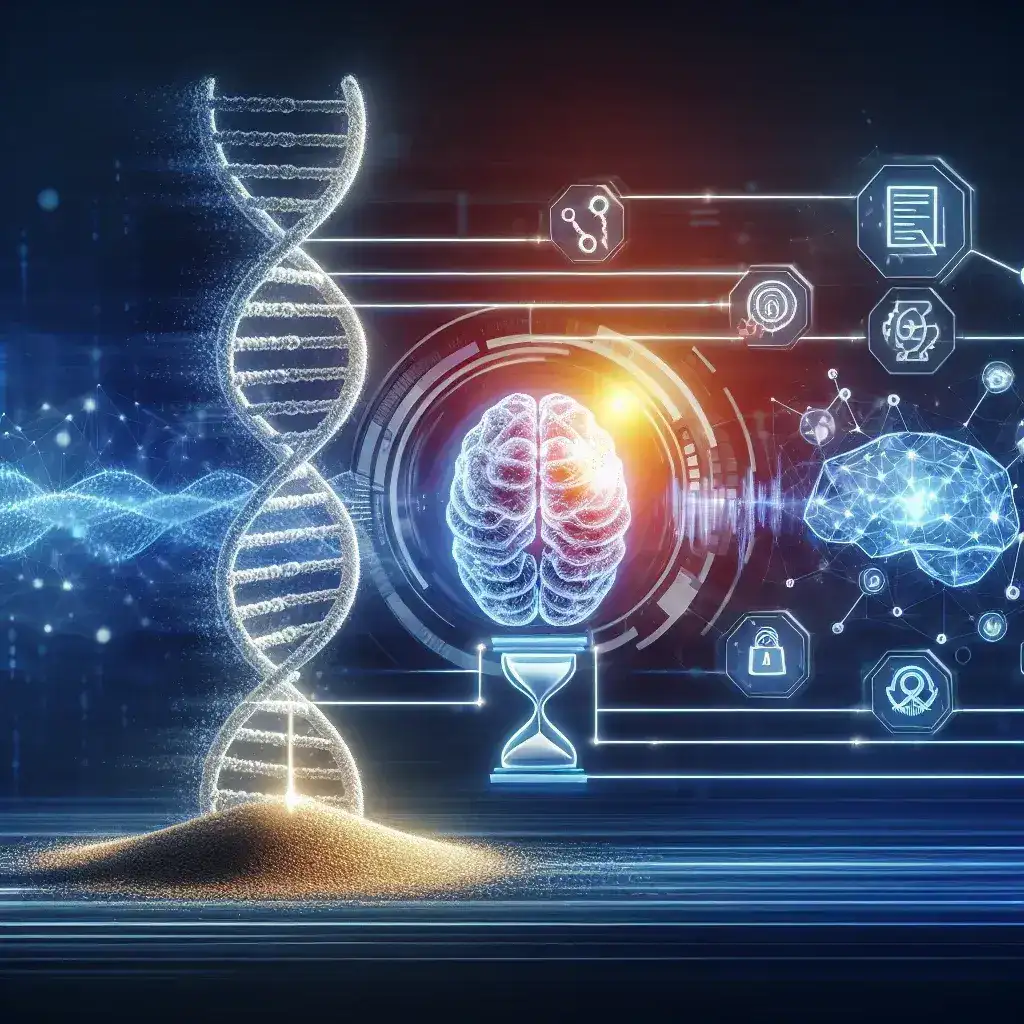Introduction
In the realm of modern science, AI-powered bioinformatics is emerging as a transformative force, particularly in the study of genetics and longevity. Understanding the genetic factors that influence lifespan has profound implications for health, aging, and overall well-being. This article delves into how artificial intelligence is harnessed within bioinformatics to identify genetic predispositions for longevity, exploring the nuances of this exciting intersection of technology and biology.
The Intersection of AI and Bioinformatics
Bioinformatics is the application of computational technology to manage and analyze biological data, particularly in genomics. With the advent of AI, this field has taken significant strides, allowing researchers to sift through massive datasets efficiently. By utilizing machine learning algorithms and other AI techniques, scientists can identify patterns and correlations that were previously undetectable.
The Role of AI in Genetic Research
AI enhances the analysis of genomic data by:
- Data Processing: AI algorithms can process vast amounts of genomic sequences and related health data rapidly, making it feasible to analyze complex datasets.
- Pattern Recognition: Machine learning models excel at recognizing intricate patterns within genetic sequences, pinpointing variations that might be associated with longevity.
- Predictive Analytics: AI can be used to predict health outcomes based on genetic predispositions, aiding in the development of personalized medicine.
Understanding Genetic Predispositions
Genetic predispositions are inherited traits that may increase the likelihood of developing certain health conditions or influences traits such as longevity. The identification of these predispositions is crucial for understanding how genes affect aging and lifespan. Single-nucleotide polymorphisms (SNPs), for instance, are one type of genetic variance that research often focuses on.
Historical Context
The journey to decipher the human genome began with the Human Genome Project, which was completed in 2003. This monumental endeavor provided the foundational knowledge necessary for subsequent studies on genetics and longevity. As technologies advanced, particularly in sequencing methods, the volume of genetic data available for analysis expanded exponentially. AI’s role in this evolution cannot be understated; it has allowed researchers to move from mere data collection to meaningful interpretation.
AI-Powered Techniques in Identifying Longevity Genes
Various AI techniques are employed in bioinformatics to locate genes associated with longevity:
1. Machine Learning Algorithms
Machine learning algorithms, such as random forests or support vector machines, are commonly used to analyze genetic data. These algorithms can classify genes based on their association with longevity, helping to identify potential biomarkers.
2. Neural Networks
Deep learning, a subset of machine learning, uses neural networks to model complex relationships within large datasets. Neural networks can uncover subtle interactions between genes and their effects on longevity.
3. Natural Language Processing (NLP)
NLP techniques can analyze scientific literature to extract relevant genetic information, aiding researchers in keeping abreast of the latest discoveries in the field of longevity genetics.
Case Studies: Success Stories of AI in Longevity Research
Case Study 1: Identifying Longevity Genes in Centenarians
Researchers employed AI algorithms to analyze the genomes of centenarians in a landmark study. By comparing their genetic data to that of younger individuals, they identified several genetic variants that correlated with increased lifespan. This study exemplifies how AI can facilitate the discovery of longevity-associated genes.
Case Study 2: The Role of Telomeres
Telomeres, the protective caps on chromosome ends, play a significant role in cellular aging. AI has been instrumental in analyzing telomere length and its genetic factors. Studies suggest that certain genetic variants can influence telomere maintenance, relating to lifespan and aging.
Future Predictions: AI’s Role in Longevity Research
The future of AI in bioinformatics promises even greater advancements. As machine learning models become more sophisticated, their ability to predict individual health trajectories based on genetic information will become increasingly precise. Future predictions include:
- Personalized Medicine: Tailoring health interventions based on genetic predispositions will become standard practice.
- Preventative Healthcare: Early identification of genetic risks will enable proactive health measures to extend lifespan and improve quality of life.
- Increased Collaboration: Collaboration between geneticists, bioinformaticians, and data scientists will enhance the depth of research and findings.
Challenges and Ethical Considerations
Despite the promise of AI in bioinformatics, challenges remain:
Data Privacy
As genetic data is sensitive, ensuring privacy and security is paramount. Ethical considerations regarding consent and the use of genetic information must be addressed.
Bias in AI Models
If not carefully monitored, AI models can inherit biases present in training datasets, potentially leading to skewed findings. Ensuring diverse and representative data is essential for accurate predictions.
Impact on Society
The implications of identifying genetic predispositions for longevity could lead to societal changes in insurance, employment, and healthcare. These must be navigated thoughtfully to avoid discrimination based on genetic information.
Conclusion
AI-powered bioinformatics is propelling the field of genetics into uncharted territories, especially concerning longevity. By identifying genetic predispositions for a longer life, we are on the brink of a new era in personalized healthcare. As technology continues to evolve, the intersection of AI and genetics will open doors to innovative solutions for enhancing human longevity and well-being. Embracing this potential while addressing ethical challenges will be crucial in shaping a healthier, longer-lived future.

